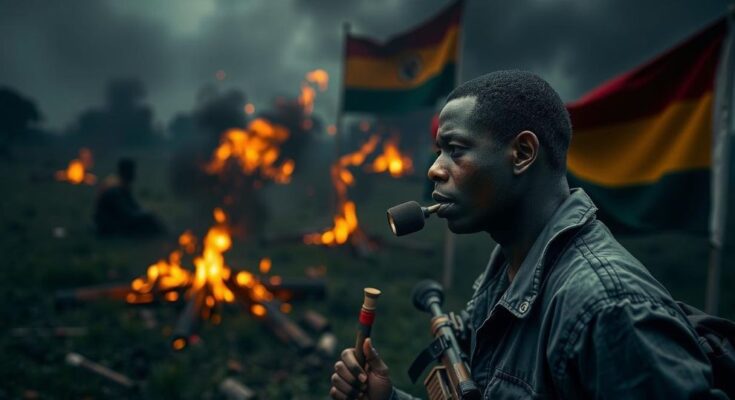The political environment in Uganda and Zimbabwe is increasingly oppressive, with government crackdowns on opposition actors amidst severe human rights abuses. Uganda’s Anti-Homosexuality Act has triggered global backlash, while Zimbabwe experiences similar repression towards dissent. Both nations face critical electoral periods characterized by authoritarian control, highlighting the urgent need for international accountability and support for democratic principles.
The political atmosphere in Uganda and Zimbabwe is increasingly concerning, marked by significant government repression against opposition leaders and human rights activists. In Uganda, the recently enacted Anti-Homosexuality Act (AHA) poses severe penalties for homosexual acts, including life imprisonment and potentially the death penalty, thereby amplifying fears of persecution. This law has received a polarized global response; while the World Bank ceased lending to Uganda, the European Union appeared to respond inadequately to the gravity of the situation.
Uganda’s ruling party continues to stifle dissent ahead of upcoming elections, exemplified by the abduction of renowned opposition leader Kiiza Besigye by state agents—a move that underscores the entrenched repression under President Yoweri Museveni’s regime. In Zimbabwe, a troubling incident involving the detention of 35 opposition leaders illustrates the similar authoritarian tactics employed by President Emmerson Mnangagwa’s government.
The political repression in Zimbabwe mirrors that of Uganda, particularly through legal manipulations and the intimidation of dissenters. Jameson Timba, the interim leader of the Citizens Coalition for Change, faced unjust charges that originated from attending a social gathering, highlighting the absurdity of the oppressive legal framework in place. The governing administration is thus accused of reviving repressive practices reminiscent of its predecessor’s tactics against dissent.
Moreover, the geopolitical implications of these developments are concerning, particularly with Kenya’s perceived complicity following Besigye’s abduction. The rise of Russian influence in the region, particularly in galvanizing anti-LGBT sentiment, adds further complexity to the political landscape. This underscores a troubling trend where international dynamics may be used to foster division and suppress progressive movements.
Both nations approach their electoral cycles with a backdrop of systematic repression, leaving citizens wary of potential change. Activists decry the prioritization of economic interests over human rights within international diplomacy, particularly from the European Union. The calls for genuine support resonate louder as both nations grapple with abuses of power and the crucial need for accountability in governance.
In summary, the political climate in Uganda and Zimbabwe is dire, overshadowed by human rights violations and crackdowns against political opposition. There is a pressing necessity for a reevaluation of international relations that holds these governments accountable while advocating for democratic practices among citizens struggling for their rights.
The recent developments in Uganda and Zimbabwe reveal alarming patterns of governmental oppression targeting opposition voices and human rights advocates. Notably, Uganda’s Anti-Homosexuality Act has raised fears of severe discrimination and persecution of the LGBTQ+ community and those advocating for their rights. The situation in Zimbabwe mirrors Uganda’s trend of political repression, characterized by arrests and oppressive legal actions against opposition leaders. Both countries confront critical electoral seasons under authoritarian regimes, prompting discussions about the international community’s role in supporting democratic values and human rights amidst such turmoil.
In conclusion, the challenges faced by Uganda and Zimbabwe are emblematic of a broader crisis of political repression in Africa, demanding urgent attention from the international community. The systematic denial of democratic rights and the protection of human rights ought to be at the forefront of diplomatic engagements. Furthermore, there is a pressing need for international bodies to adopt a consistent stance in support of democracy and accountability to mitigate complicity with oppressive governments, thereby fostering an environment conducive to genuine democratic processes.
Original Source: evrimagaci.org




